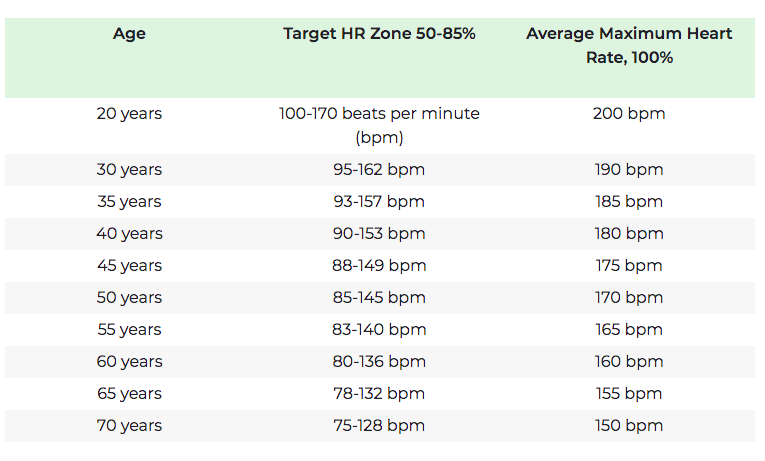
It’s an alarming statistic: The Centers for Disease Control estimates that approximately six in ten adults in the U.S. are living with a chronic disease and four in ten adults have two or more chronic diseases, including heart disease, diabetes and cancer. Discovering the presence of a chronic disease is key to treating it in its early stages when positive outcomes are more favorable, which is why making an annual physical exam is important for delivering preventative health services and detecting problems before they start.
Your physical exam is an essential routine diagnostic test that your primary care provider performs to review your overall health and wellbeing. Scheduling an annual physical exam is a positive step to make on your healthcare journey. Here is what you can expect during your annual physical exam with your primary care provider.
1. Height and Weight Measurements
During your physical exam, your height and weight measurements are taken. These measurements calculate your body mass index (BMI), which screens a patient for being underweight or overweight. Since being overweight can lead to many harmful health conditions, such as high blood pressure, heart disease and type 2 diabetes, it is important to know if you’re at a healthy body weight. In addition, your doctor will monitor your measurements to determine if there are any sudden weight gains or losses, which can be a sign that there is a change in your health.
2. Review Past Family, Medical, and Social History
Before meeting with your primary care provider, a nurse or medical assistant will ask you a series of questions regarding your medical history. Be prepared to answer questions including any symptoms you’re experiencing, allergies, vaccinations, past surgeries, etc. You will also be asked a few lifestyle questions that relate to your health, such as activity level, drug and alcohol use. This information is then updated on the patient’s medical record. As always, it’s important to be upfront and transparent with your doctor, as they are not here to pass any sort of judgment.
3. Complete Physical Exam
During the physical exam, your primary care provider will check your vital signs, including:
- Heart rate: While a normal resting heart rate varies from person to person, the Mayo Clinic states that an adult’s heart rate should be between 60 to 100 beats per minute.
 Source: American Heart Association
Source: American Heart Association
- Blood pressure: This test measures the pressure in your arteries as your heart pumps blood throughout your body. Blood pressure that is considered ‘normal’ is numbers less than 120/80 mm Hg. Your lifestyle, such as your eating habits and activity level, can affect your blood pressure.
- Visual exam: Your healthcare provider will complete a visual exam, including examining your eyes, chest, abdomen, hands and wrists, for signs of any potential conditions.
- Blood test: A complete blood count may be ordered to check the health of your kidneys, liver, immune system and blood chemistry. Detecting an irregularity in your blood count may indicate that there is a larger issue at play. Your doctor may also perform specific tests, such as a diabetes screening or urine test, or screenings based on what your vitals and physical exam reveals.
4. Update Vaccines
Receiving the proper vaccines is an important part of your healthcare routine in childhood and throughout adulthood. You may need other vaccinations based on factors such as your sexual lifestyle, current medical conditions and occupation. An annual physical exam is an opportune time for your doctor to review your vaccination record to see if you can benefit or are due for a vaccine. Children and adults can receive their annual flu shot during this time; we recommend receiving this vaccine before the flu season begins, around October.
By following the vaccination recommendations for adults set out by health organizations such as the Centers for Disease Control and Prevention, you can help to keep yourself healthy and prevent several life-threatening diseases.
5. Manage Medications
The CDC estimates that nearly 22.4% of adults age 40-79 take five or more prescription drugs. If you are combining more than one prescription drug, this may put you at a greater risk for harmful interactions. During your physical exam, you can either bring in or write down your prescribed medications, supplements and over-the-counter medications to review with your doctor.
It’s important to keep in mind, that even though you have been using the same medication for a long time, you should still review it with your doctor. Your body changes as you age, which can affect how medications are broken down so you may need to increase or decrease your doses.
6. Provide Healthcare Guidance
Your physical exam is also a chance to build a relationship with your doctor. During your exam, we encourage patients to ask questions or concerns related to their healthcare. Be upfront with any unhealthy habits you’d like to change so you and your healthcare provider can set realistic goals for changing them. To make the most of your exam, we recommend coming to your appointment with a list of questions prepared, if applicable. These questions can include topics, such as:
- – Is there something I’m not doing healthcare-wise that I should be doing?
- – Do you recommend adding any supplements to my diet?
- – Am I at a normal weight for my body?
- – Do I need to see a specialist?
- – Should I receive any additional screening tests based on my family or medical history?
Annual physical exams are an important tool for ensuring good health. Note, each patient’s physical exam is different and tailored to their individual medical needs. When you prioritize your health by making a physical exam, you are making an important choice to take responsibility for your wellbeing and quality of life.
At PACT, our doctors and specialists are dedicated to delivering high-quality patient-centered care. If you or a loved are searching for a primary care provider, click here to search PACT’s list of Connecticut based, board-certified doctors near you.
Looking For a Primary Care Doctor in Connecticut?
PACT Primary Care is Accepting New Patients!
Locations throughout Connecticut in Guilford, Hamden, Madison, Milford, New Haven, Orange, West Haven and Wallingford.
To schedule an appointment, request an appointment online here or call a local center near you.

